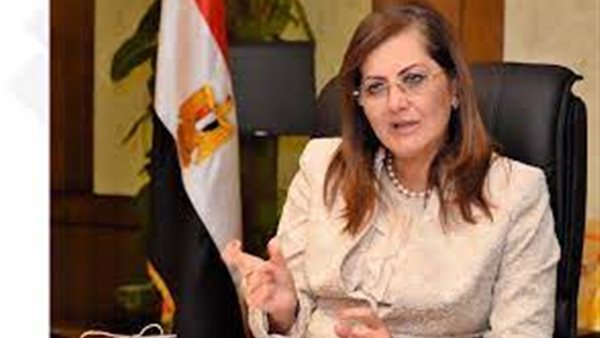In order to further the World Bank’s dialogue on human development, Dr. Hala Al-Saeed, Minister of Planning and Economic Development, met with Ms. Kiko Miwah, Regional Director of Human Development at the Bank, and the Bank’s work team. Dr. Ahmed Kamali, Deputy Minister of Planning and Economic Development, Kamal Nasr, Assistant Minister for Technical Office Affairs, and Hazem Khairat, Director of the International Cooperation Office were also present.
Dr. Hala Al-Saeed emphasised the value of ongoing support and cooperation between the World Bank and the Ministry of Planning and Economic Development at the start of the conference. And Egypt, in view of current global economic activity trends.
Regarding the social protection measures implemented by Egypt, Al-Saeed cited the launch of the Egyptian government’s “Solidarity and Dignity” programme for cash assistance, which assists Egypt’s most indigent citizens and is crucial in relieving families who are experiencing difficult living conditions. He added that the program’s beneficiaries have so far reached 3. 8 million families at a cost of 19 billion pounds and that there is a presidential directive to provide cash assistance to families who are suffering from difficult living conditions.
1 million in the following years, increasing the price to 21 billion pounds.
Al-Saeed stated that the government made the following announcement this month: Increasing the number of beneficiaries of “Takaful and Karama” pensions from 4. 1 million families to more than 5 million families, which means that between 900,000 and 1 million new families will enrol in the programme. The total cost of the programme is estimated to be 5. 5 billion pounds annually.
Egyptian state policy The Takaful and Karama Program, as well as the several projects that sprang from their database, have significantly improved the lives of Egypt’s most vulnerable inhabitants.
Al-Saeed noted that in the last eight years, this programme received funding of almost $7 billion, or LE121 billion, representing a growth rate of 591% in comparison to the previous eight years. This helped to increase the number of beneficiaries from 1. 7 million families, or 6.
4 million citizens, down to 4 million in 2014. 17 million people in the United States in 2022.
Al-Saeed discussed the “Decent Life” initiative, describing how it aims to transform more than 4,500 Egyptian villages into sustainable rural communities by reducing poverty and multidimensional unemployment. Noting that climate change has become a top priority around the world and the Dignified Lif initiative, he added that the initiative aims to improve the quality of life in the poorest rural communities within the framework of the sustainable development strategy: Egypt’s Vision 2030.
Regarding the national project for the development of the Egyptian family, Al-Saeed stated that the programme is developing a set of policies that focus primarily on the economic empowerment of women, promoting effective reproductive health services, raising awareness, and digitising systems, while also attempting to address the demographic challenge Egypt faces from a development perspective.
Al-Saeed cited the establishment of the Ministry of Planning and Economic Development, which, in collaboration with J-PAL, the Egyptian Impact Measurement Laboratory, aims to improve the efficacy of policies aimed at reducing poverty in Egypt through careful analysis of innovative and promising government initiatives. It also helps create a culture of evidence-based decision-making from through enhancing the ability of the government to use data in the development and delivery of programmes.
At the World Bank, the Regional Director of Human Development meets with the Minister of Planning and Economic Development.

